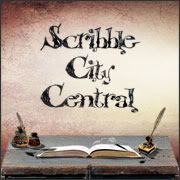
I came across the WildInk blog a couple of days ago, and very much liked the new haikus I found there. Haiku is one of my favourite forms of poetry. To condense so much feeling and atmosphere into so few words is an art--and a difficult one. I have never managed to write one to my own complete satisfaction, but I shall keep trying. It is an art worth working at.
As a student I remember marvelling over Ezra Pound's In a Station of the Metro from "Contemporania," Poetry: A Magazine of Verse, 2.1 (April 1913), which I make no apology for repeating here in case there are those who do not know it:
As a student I remember marvelling over Ezra Pound's In a Station of the Metro from "Contemporania," Poetry: A Magazine of Verse, 2.1 (April 1913), which I make no apology for repeating here in case there are those who do not know it:
The apparition of these faces in the crowd:
Petals on a wet, black bough.
With a boyfriend in Paris at that time, I spent a lot of hours riding the Metro and mouthing the station names of Denfert-Rochereau, Chatelet-Les Halles, Pyramides, Arts et Metiers, Sevres-Babylone (a poem in themselves, and so much more romantic than Marylebone, Ealing, Euston or Lewisham). I understood Pound's words exactly from my own experience, and even now they conjure up the frantic, crowded platform jostling, the harsh braying note of the closing doors and the slightly sweet smell of sewers and smoke from a million damp Gauloise cigarette butts which would say 'Paris' to my senses even if I were blindfolded.
Years after Paris, I made a trip to Japan, the true home of haiku. Riding the Tokyo Metro was a different experience entirely, and yet just as evocative in its way. Coming in from Narita airport I remember eating sushi from my first bento box and marvelling at brown-grey jagged hills covered in pine trees and moss, exactly like a Hokusai print--and that was before I'd even seen Mount Fuji.
In Japan I felt tall for the first time--but also alien, standing out like a sore thumb above the massed commuters on the platform, trying to read signs in a language I had no hope of understanding. Somehow, though, I trusted myself to one of the seemingly familiar coloured lines on the map and arrived where I was meant to be--a place where a friend had told me I would find a taste of the 'real' Tokyo, far from the blazing multi-coloured neon signs of Shibuya and the clicking cameras whirring outside the Imperial Palace. In Shinjuku I got lost deliberately--the best way to discover unexpected wonders. There was the tiny shop with a window full of wooden shoes, which I entered down three rickety steps to find a tiny grey-haired woman bowing to me. I bowed back politely, and suddenly the lack of language was no longer a barrier. With mime and hand gesture and more bowing, we communicated perfectly, and I left with three exquisite pairs of shoes, destined for the (then) small feet of the Gazelle Girl, her brother and my god-daughter, all wrapped in patterned paper with a little string to carry them by. I wandered deserted shrines with small offerings of food and flowers before them, and then found myself in a busy market where I was, once again, alien--the alien window shopper amongst a sea of hurrying, haggling housewives buying live chickens, leafy vegetable, roots large and small and rice from great hoppers as tall as the eaves.
There were many more metro trips along the coloured lines of Chiyoda, Marounouchi, Yurakucho, Asakusa and Oedo, but the final one took me to the peaceful woods of the Emperor Meiji's garden--tribute to his beloved Empress wife. Here's what I wrote about it. Not a haiku, but I like to think it has some of the idiophones which characterise other Japanese poetry.
In Emperor Meiji's garden
black bright carp
dance
their slow drumbeat
on waterlily ripples.
The Empress Shoken sleeps
and nesting crows
sound
requiems of flight
above the weeping trees.
copyright Lucy Coats 1998
black bright carp
dance
their slow drumbeat
on waterlily ripples.
The Empress Shoken sleeps
and nesting crows
sound
requiems of flight
above the weeping trees.
copyright Lucy Coats 1998
















11 comments:
Haiku is one style I've never tried. Like self-censorship, isn't it? Guess you write and cut, cut, cut, and more cut... (just this comment is too long for haiku!)
cut cut and cut...just about right!
Thanks for the link, Lucy! I enjoyed reading your Japanese experience -- it comes to life in your desciption and poem. What I find with writing haiku is that it is not about cutting, but more about focusing on a moment. Once I started writing haiku, I started to think in small focused word-pictures. Ideally, what is not said also comes across (?)
in other words, I encourage people to try writing haiku. It gets easier, and it's fun!
:)
Maybe I'll be brave enough to have another go, then :-)
Ah but Lucy, remember how a Spaniard thought "Cellar Door" was the most beautiful phrase in the English language!
Perhaps Marylebone has a magic for some (and if you think of it as "Mary the Good" is has a certain je ne sais quoi). And what about the Angel? Earl's Court? Hammersmith? We take them for granted until someone like Neil Gaiman comes along and shows us the forgotten meaning.
Swonzee is an ugly word but "swan sea" beautiful. Sytange thing, language.
I don't much care for Haikai but wrote this one once:
In the English classroom
See the children write
Japanese poems.
Strange thing spelling too, apparently!
Very true, Mary. And I know now (though I didn't think so as a callow student) that there is romance in London names. Personally, I like the sound of sytange, and wonder how we can insert it into the language as a new and exciting word. Better than the boring choice of web 2.0 as the millionth word for the OED. Bah! Now that really IS unromantic.
maybe you should invite definitions for sytange. I certainly want to use it :-)
sorry, that wasn't lauren at all...
on foreign metros: I discovered a pet shop that sold golden eagles after getting lost on the HK metro (while being chased by an orange-haired psychopath, so getting lost seemed the best option). I completely agree that getting lost is the best way to find out about places :-)
Lovely post. Getting lost is the best experience, isn't it, especially when it is deliberate. Oddly, I've also had wonderful experiences on driving trips in foreign lands when the car has broken down (or once, when we were hit by a gasoline truck in a Pemex station and had to spend an unplanned week in a desert town in Mexico.)
I haven't been to Japan yet, but I've enjoyed many Haiku and Japanese wood block prints.
Post a Comment